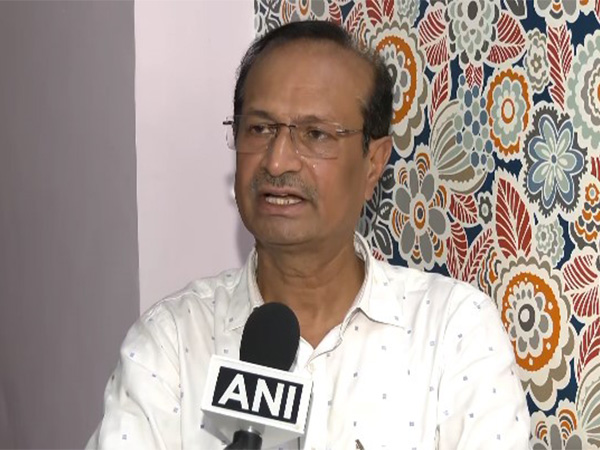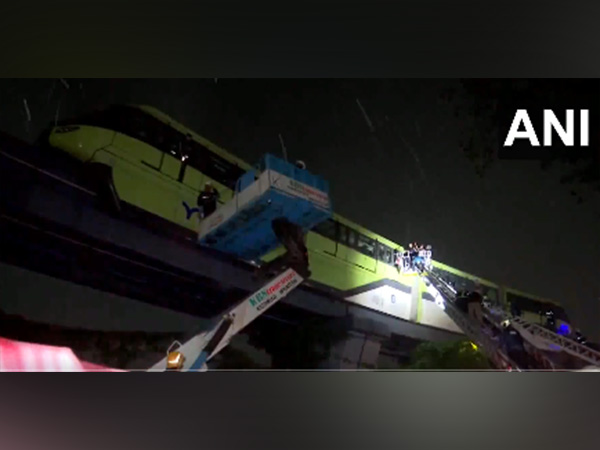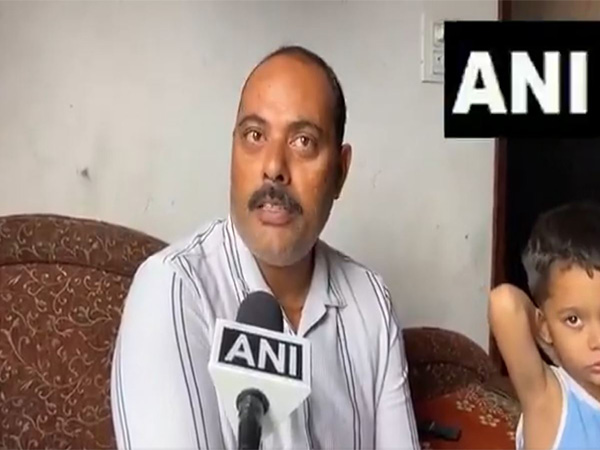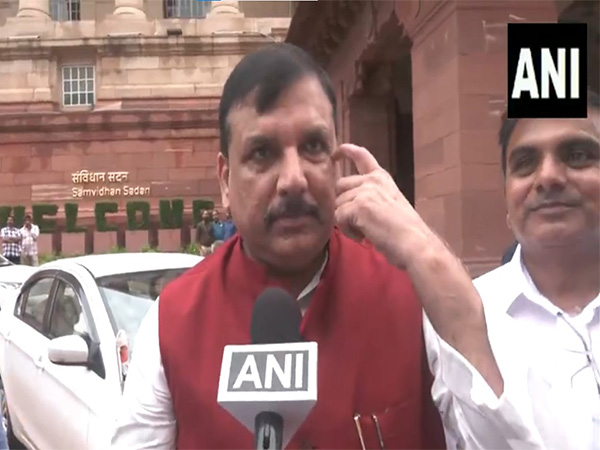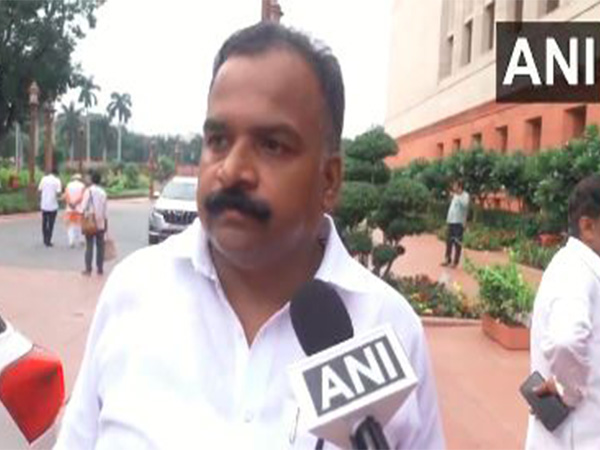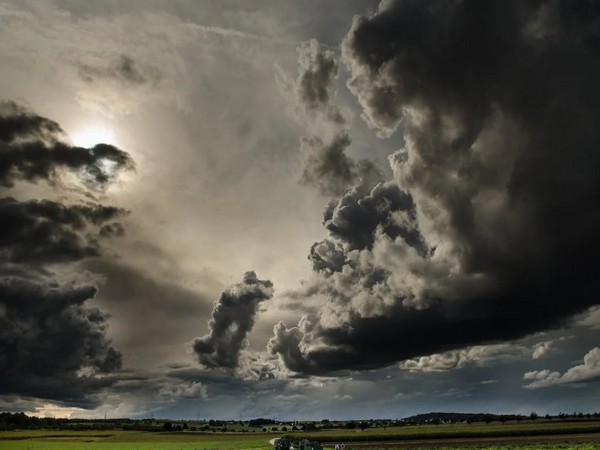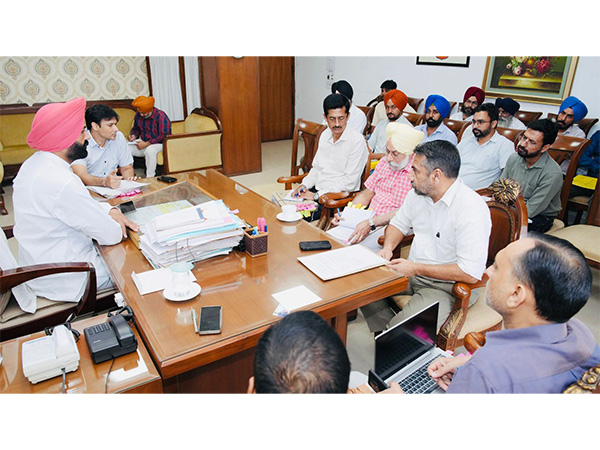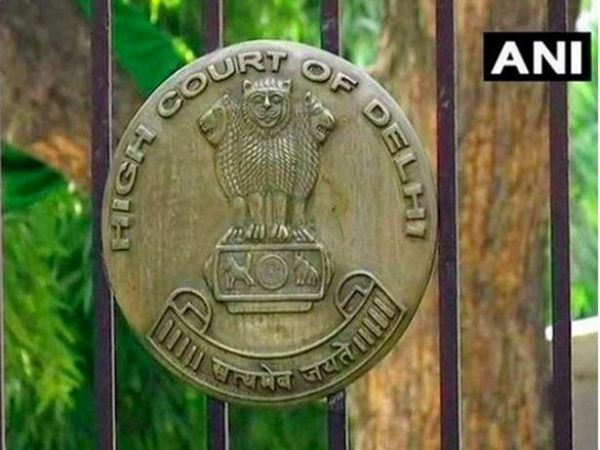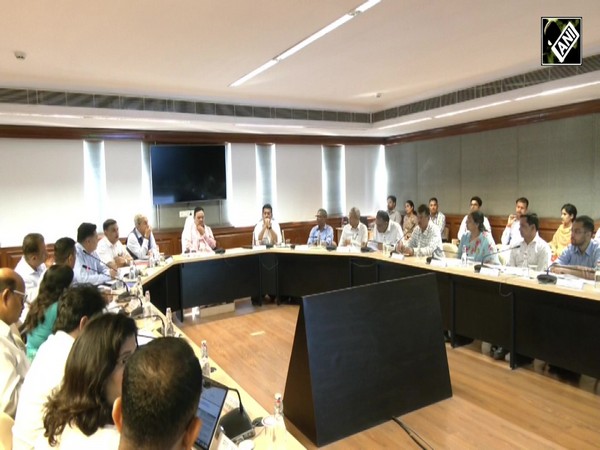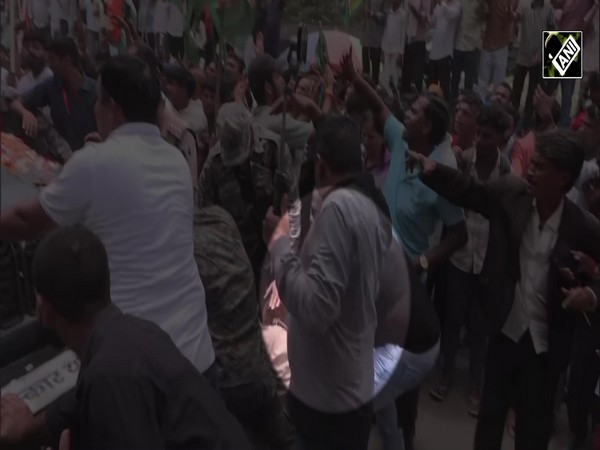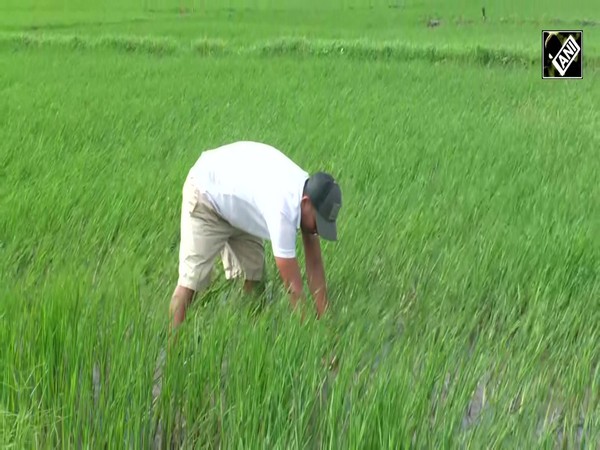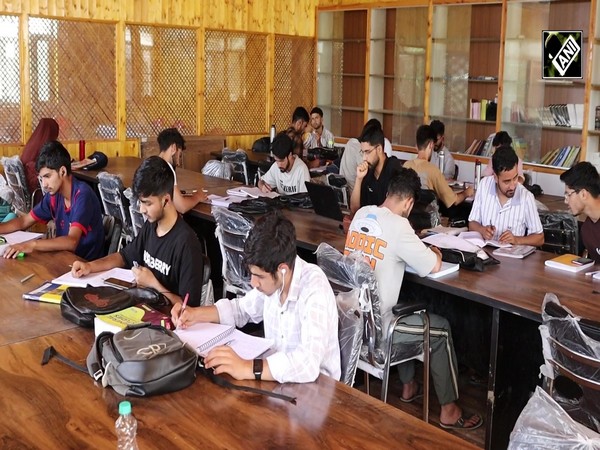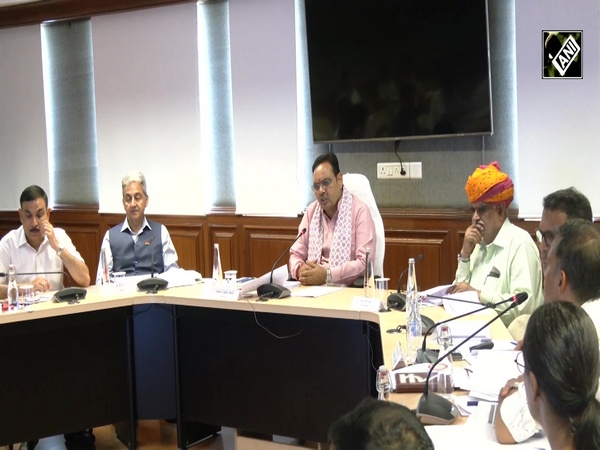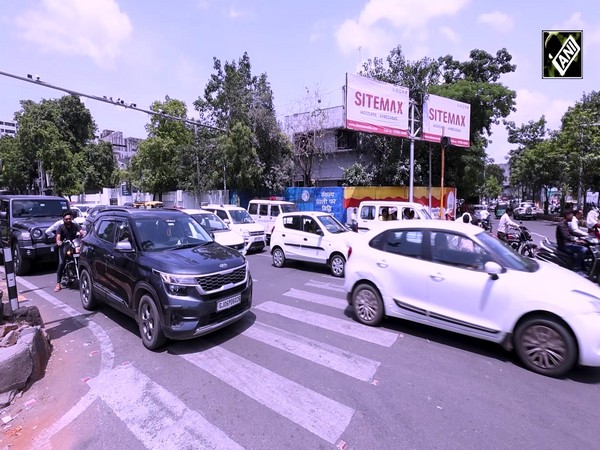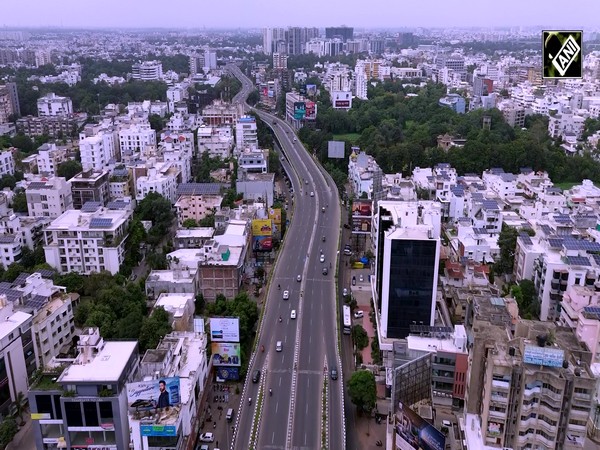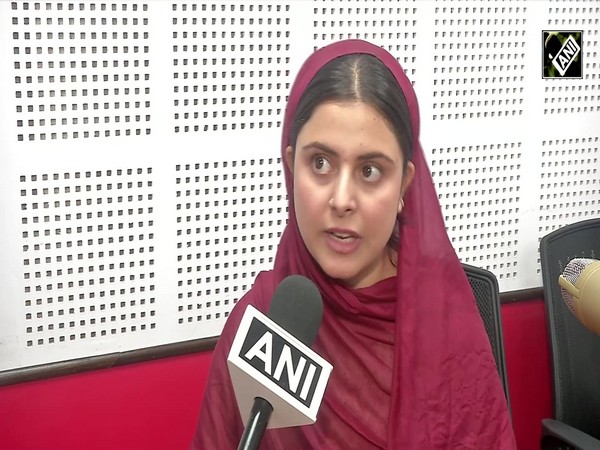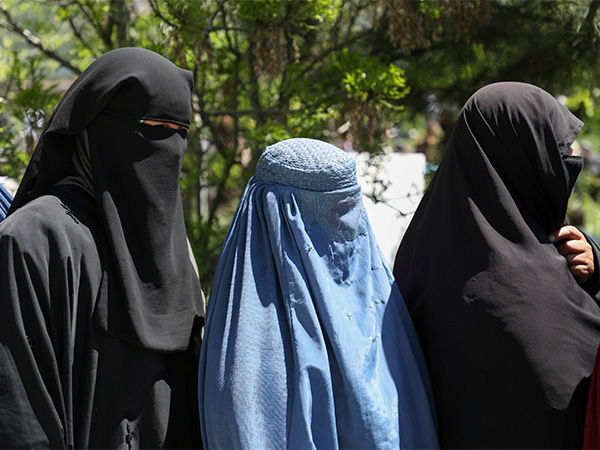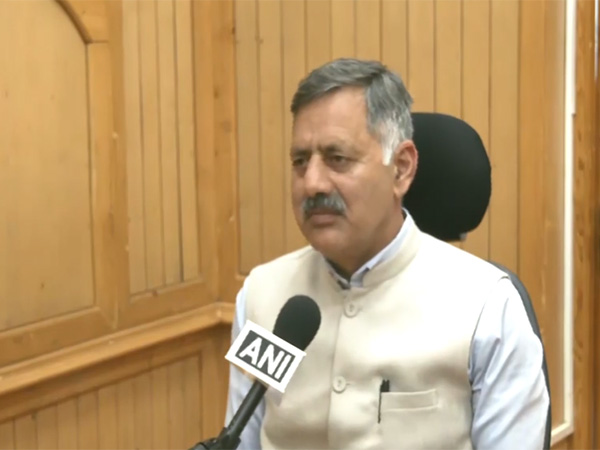
Himachal Pradesh Minister Rajesh Dharmani calls for national and global compensation for mountain states
Aug 19, 2025
Shimla (Himachal Pradesh) [India], August 19 : Rajesh Dharmani, Town and Country Planning and Technical Education Minister of Himachal Pradesh, on Tuesday stated that the impact of global carbon emissions were being disproportionately borne by Himalayan states, which had been facing repeated mountain disasters, further bringing to attention how no compensation was being provided either at the international or national levels.
He further stated that the need of the hour was to bring a plan to regulate the entire state.
Speaking to ANI, Dharmani revealed that he, along with two Congress MLAs and the Chief Minister's IT advisor, had to vacate their official residences in Shimla on Monday night after heavy rain triggered a landslide and uprooted trees in Benmore and Ramchandra Chowk areas of the state capital. They have been shifted temporarily to government guest houses.
"It was around 11:30 pm when a loud explosion was heard in Ramchandra Chowk. Power supply snapped, and behind my residence, an old building housing around 40 people had to be evacuated. Families and children rushed out in panic. I immediately and called on the emergency numbers. Police, rescue teams and local councillors reached the spot, and later, we were advised by the PWD to vacate the residences as water pipelines and trees had collapsed, causing further risk," Dharmani told ANI.
The minister further stated that he was not the only one affected due to the landslides and floods.
"Along with me, MLAs Ramkumar Chaudhary and Ashish Butail, as well as the Chief Minister's IT advisor Gokul Patel, were also shifted. Around 40-45 local residents living in the adjoining block were evacuated to safer places, with arrangements made in government rest houses and guest houses, including the Haryana government rest house in Shimla and accommodation at Dharamshala facilitated by MLA Ashish Butail," he explained.
Highlighting the high-level damage caused by the natural disasters, Dharmani stated that there was a need to assess, study and develop risk-reduction strategies to minimise the losses.
"We need scientific studies, disaster loss assessments, and effective risk-reduction strategies. Some disasters like earthquakes and lightning are beyond control, but their damage can be minimised through strict planning norms, as seen in Japan. At the same time, human activities like unregulated construction, industrial emissions, and pesticide overuse are worsening vulnerabilities," he noted.
The minister stressed that despite Himachal's proactive environmental policies, such as banning large-scale tree felling and promoting green energy, the state had been left without fair compensation.
"At the recent GST Council meeting, I urged the Union Finance Minister that the Himalayan states must be compensated. Globally, the Kyoto Protocol recognised that heavily polluting countries must support developing nations. Similarly, within India, industrial states with higher carbon emissions should support hill states like Himachal, which preserve glaciers, forests, and generate oxygen. We are providing ecological services, and we must be compensated," Dharmani said.
He further outlined a series of regulatory steps being taken through the Town and Country Planning (TCP) department.
He said the steps taken includes declaring no-construction zones within 5 meters vertically and 7 meters horizontally in landslide-prone slopes, making TCP approval mandatory for construction above 650 square meters in urban and special development areas, preparing regional development plans for Shimla, Kullu, and Kangra, and extending it across the state in collaboration with the School of Planning and Architecture among another measures.
Dharmani added that retrofitting old, vulnerable structures, regulating dumping sites for road projects, and empowering Panchayati Raj institutions to approve rural construction maps are among the next interventions.
"Every tree has a life cycle, but instead of indiscriminate removal, we need scientific afforestation. For every tree extracted, we should plant at least 100 more. Recently, the High Court has directed that Tara Devi Hill Zone be declared a complete green zone with no construction allowed," he said, answering a question on the afforestation of Delodar pine trees in Shimla, which are damaging life and properties.
Calling the current crisis a "wake-up call," the minister said that Himachal Pradesh would pursue both local planning reforms and push for stronger national and global commitments to safeguard fragile mountain ecosystems.

